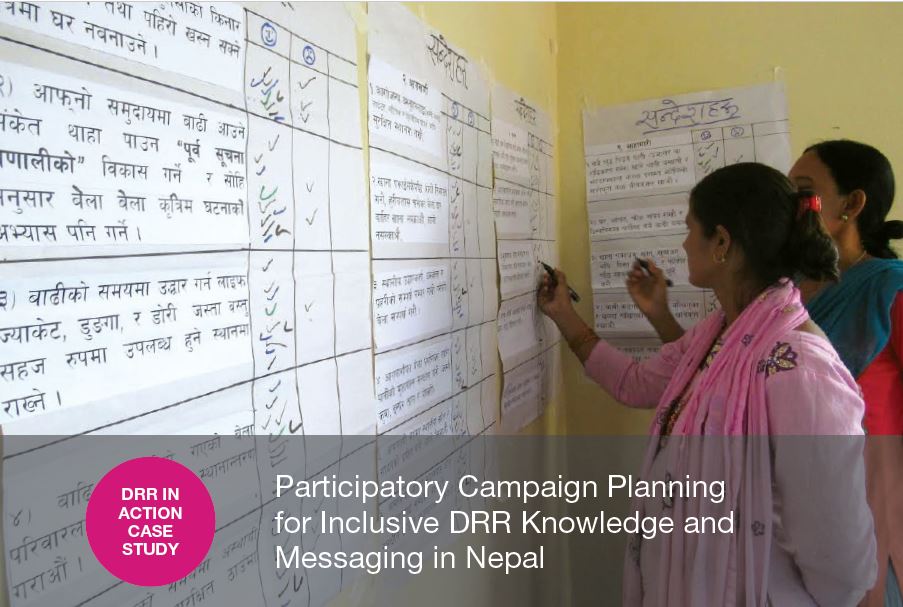Participatory Campaign Planning for Inclusive DRR Knowledge and Messaging in Nepal

The Strengthening Urban Resilience and Engagement (SURE) program developed a Participatory Campaign Planning (PCP) process to improve disaster messaging and increase awareness of disaster risks and mitigation measures among vulnerable groups in Nepal.
The project included a series of interactive workshops to determine which messages and means of communicating would most effectively reach each of the target groups. An analysis of the workshop findings showed that crucial elements to consider when targeting hazard messaging include: financial resources, existing knowledge, physical infrastructure, natural resources, the legal system, and social status.
While it’s too early to determine the SURE program’s long-term impacts, the project has received positive feedback from the groups involved and has led to more customized messaging aimed at target groups. The project’s findings also give further support the idea that a blanket approach to disaster messaging is ineffective in creating behavior change.
https://media.ifrc.org/ifrc/2018-asian-ministerial-conference-disaster-risk-redu…
2018 Asian Ministerial Conference for Disaster Risk Reduction
